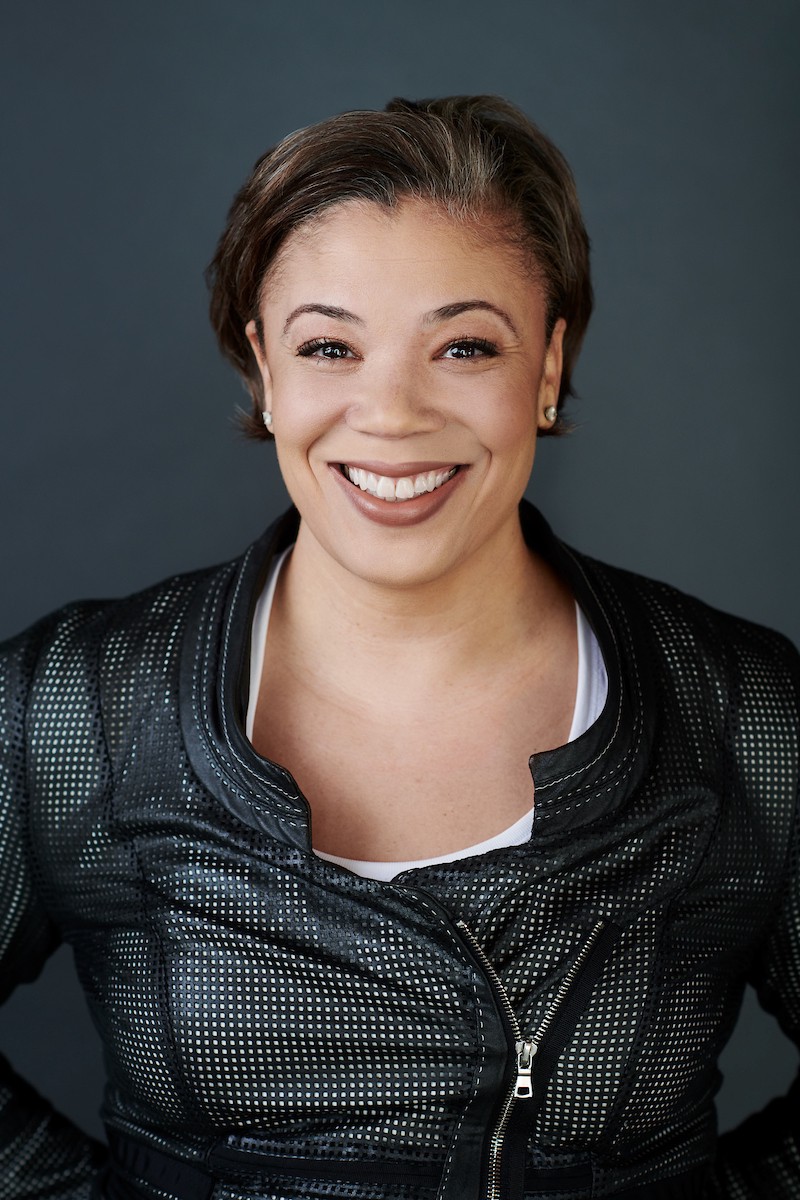Makeeba McCreary is the Managing Director & Sr. Advisor of External Affairs at Boston Public Schools.

In February 2017 Mayor Martin J. Walsh and Boston Public Schools (BPS) Superintendent Tommy Chang announced the promotion of Dr. Makeeba McCreary to the role of Managing Director & Senior Advisor of External Affairs for BPS. Dr. McCreary previously served as Chief of Staff for BPS Superintendent Tommy Chang.
Dr. McCreary has spent 20 years in educational policy, designed and managed philanthropic investment for global brands such as Nike Inc., Jordan Brand, National Boys and Girls Clubs of America, and Darden Inc. Dr. McCreary’s early career was spent in direct service delivery with opportunity youth. In addition to her direct student work, she has designed, programmed and supported team-problem solving with urban public school teachers in order to reduce the disproportionate special education designation of Black and Latino children, particularly boys.
Let’s start with a little background. What brought you to the role that you’re in today?
My family comes from a human service background. Both of my parents worked in the alcoholism and substance abuse recovery fields. My personal roots were at Pine Street Inn, working in the men’s unit. That evolved into working with a younger population–folks who were really in crisis–specifically at the COMPASS School. Being there got me thinking that I really wanted to design my own programming. So I finished my undergrad, did some policy work, and got my Masters. That transferred into doing a lot of work at the district level in urban school districts, with a focus on the disproportionate placing of students of color in special education. That experience was a lot of learning, a lot of understanding how teachers can have the highest expectations of their students regardless of how those students show up. At the same time, I was working on my dissertation addressing specifically how teachers problem solve for boys of color in special education, with a focus on urban middle schools.
At the time, I was doing consulting work on the side with a team of folks who were educationally grounded. It was a full time job with a focus in fundraising and resource development that expanded my toolkit from a consultancy perspective. I was doing a lot of thinking about public education, about adults, about urban settings, and decided to take those three things together and delve into philanthropic investments. For me, it was about figuring out how you invest one investment into another. How you get them to partner with one another and really make those resources stretch.
Then an amazing opportunity I could have never imagined came up–I was hired to manage Jordan Fundamentals, a $1M national, annual grant program for public school teachers. I was able to evaluate, redesign and implement the program for about 7 years, all while continuing to do work in corporate sector, with a focus on community investment. I ultimately launched my own business and ended up with an amazing client roster from both the nonprofit and corporate sectors. It’s this unique niche where you’re really able to bridge those two universes. They really are two different languages and perspectives until you get the opportunity to sit both sides down at the table. That’s when you can find that there really are a ton of synergies. I ran my own foundation and consulting practice. And then in this latest part of my journey, I found myself yearning to be working with a team of people. Consulting can be lonely. I wanted to be a part of one brand, one vision, one team, and to do a lot of cross-sector problem-solving.
Your path has evolved in a lot of really interesting ways. Do you have any advice for young students based on learnings you had along the way?
Don’t set the end goal at the beginning. Be present through every single experience. If you’re not, you miss out on the twists and turns that might take you on a different path that you didn’t imagine in the first place. You need to pay attention to what’s in the moment.
Can you tell me a little bit about the Office of External Affairs? What is your role?
About 18 months into my role as Chief of Staff, I was asked to launch this new office. It was a direct response to a lot of the corporate investment coming into school system. There was no one to own it and no one to manage those relationships. Really a big trigger was the $25M investment from GE, on top of Vertex’s tremendous investment through their learning lab and ancillary philanthropic efforts. So, we were asked to be the home for that work.
What I’ve found in this time is that there is no lack of willingness for corporations to invest in our school system. There is a real need for us to get better within the district at stewarding those dollars and resources in ways that are sustainable. We need to be able to build capacity for school leaders, build capacity for central office staff, and manage those investments independently. That has been our biggest learning curve. But, our private sector partners are waiting at the door to get in.
Since you started this office, what has been your favorite initiative that your team has started?
I don’t mean to be biased, but we’re knee deep in a HUBweek initiative right now. I go back to moment I first sat with Brendan and Linda (HUBweek’s executive director and chair, respectively). I sent an email to Linda Henry out of the blue a year and a half ago. She didn’t know me. I was really worried about our students not thinking they had access to something so cool as HUBweek. So I asked her, how do we get them into those domes and shipping containers? She immediately responded for me to come in and talk to her about it. I have to give a huge shoutout there. This is exactly what I mean when I say our private sector partners are hugely responsive.
The second moment that I was thrilled about was when we in that short time managed to get some of our students and teachers out to HUBweek. But better yet, when I walked by Brendan on site, we both said and agreed “we gotta get 500 students out here next year.” So here we are six months later, doing it. That for me coming from a government entity and institution is big. Typically school systems are not nimble, they are not able to be responsive in the same timeframe as the opportunities that come up require. Being able to dispel that and make that a myth is really powerful.
We are putting close to 200 teachers through this teach-in program over the next month. We’ve gotten a tremendous amount of goodwill from our corporate partners and they have asked nothing of us and have been totally willing to take this chance, to co-create with us. And lastly, I’m looking forward to October. We’re treating this as an action research project. We’re going to see what this program in June brings us and then turn it around and ask our teachers and our students what we should do next. Then it will be our time to co-create with them.
Can you share a little bit more about the teach-in and mobile container project we’ve got underway? What’s your hope for it in terms of outcomes?
Together with HUBweek and our five industry partners, Vertex, Microsoft, Apple, Houghton Mifflin Harcourt, and LEGO Education, we’re launching this month a program titled “Connecting to the Future.” The aim is to connect both Boston teachers and students to leading companies and ideas that are shaping our future. Most notably, teachers participating in the program will gain professional development credit as they learn about the latest technologies and innovations coming out of various sectors in Boston, with concepts to be integrated into BPS curricula this fall. It will feature a series of teach-ins and a mobile container experience that will be traveling to various neighborhoods throughout the city in June, and then a culminating experience at HUBweek this fall.
In terms of outcomes we’re hoping for, they are different for different audiences. For our teachers: I want them to now proactively request professional development experiences with our corporate partners. I want them to ask for it. I want our corporate partners to know that while we want the checks–don’t get me wrong, the checks are amazing–we really want their expertise, too. That is the thing that is going to close the achievement gap, the opportunity gap. Getting our kids in hands on opportunities, and allowing them to see themselves in these careers, to make these careers much less foreign to them. I want our students to demand these experiences from us. I want it to be their expectation that the city is their classroom.
I want our students to demand these experiences from us. I want it to be their expectation that the city is their classroom.
I hope HUBweek realizes what its bringing to City of Boston. Creating this innovation festival is meaningful for private industry and startup partners, but also in terms of solving a significant challenge for public education in that closure of the opportunity gap.
What about our future leaders makes you most hopeful?
They are great risk takers. We already know developmentally that we create a lot of barriers to kids’ natural inquisitiveness. We haven’t been successful, thank goodness. We have this group of high school students that we treat as a marketing team. These kids are willing to try anything. They got so excited to go to the mayoral debate for the first time. They were that full of agency where they said, “this is my city, these are the future leaders of my city, I want to understand what they’re talking about and what’s going on.”
Worst and/or best piece of advice you ever received?
I was in the middle of that thing we started with. I was not paying attention to the moment because I was more worried about where I was going. I met with a couple folks, including this person that I really looked up to. They told me go read this book, What Color Is Your Parachute? So I went and I read it. And I was so completely demoralized, even a little bit offended. Everything I read, I kept thinking, this is for a high school student, for kids who are trying to figure out where to go to college.
It was the best thing in the world. It made me appreciate that when I asked for advice outside of myself, I didn’t need it. What I needed was to sit with myself, to be uncomfortable until I myself understood what I was supposed to be doing next. We tend to look for things from other people, but instead we end up missing that opportunity to sit and be uncomfortable with ourselves.
What’s one thing most people don’t know about you or your work? What about our young people?
Ha. I’m pretty transparent. But, I get really worried or nervous about getting it right. I can stay up for hours with insomnia thinking about how to make something successful.
The HUBweek 2018 theme is “We the Future.” Can you share a reaction to that? What does “We the Future” mean to you?
I did spend some time when I first started in the district asking what our brand was. Everyone had a different answer when it came to the elevator pitch. What I found out and was able to sort of help codify was that everyone used the same thematic concepts when it came to students. They all came to work everyday with the same belief system: that our students are absolutely the future innovators, the future technicians, the future thought partners, thought leaders. That’s why they came to work everyday. They might have had different day jobs or felt like their role was different, but they all knew why they showed up here everyday. That was an interesting aha moment for me. It made me really respect people who chose education, and particularly BPS, much more than I ever would have from the outside.
The HUBweek Change Maker series showcases the most innovative minds in art, science, and technology making an impact in Boston and around the world.
To stay up to date on our Change Makers, events in Boston, and everything else at HUBweek, subscribe to our newsletter, and follow us on Twitter, Facebook, and Instagram.

